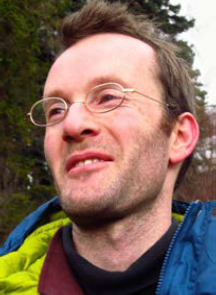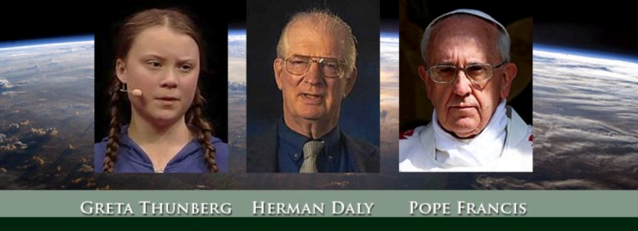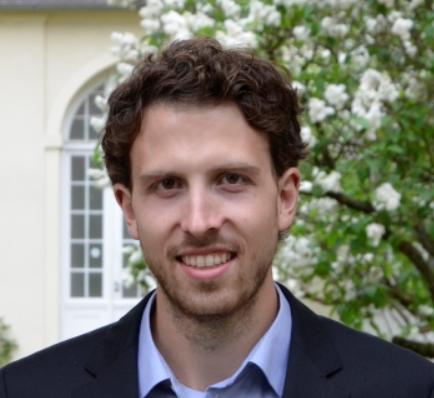Electronic ESEE Spring 2019 Newsletter
March 19th 2019, Spring edition of the electronic ESEE newsletter, prepared by the ESEE Board.
The European Society for Ecological Economics
The newsletter is distributed to members of the ESEE as well as signed up followers. To join ESEE or renew your membership please visit www.euroecolecon.org
1. Editorial
Make your voice heard

Jasper Kenter, Chair of ESEE Publications and Publicity Committee
We live in interesting times. On the one hand, we have a US state of emergency declared for a fake-emergency based on a made up ‘invasion’ of immigrants. In the EU, even though migration into the continent has fallen sharply since its peak, the rhetoric and arguments used by right wing populists do not cease and ‘defending our borders’ keeps being a main reason for people to agonise against the EU.
In the UK, the Government’s priority within their Brexit strategy has been to somehow keep the warring factions of the Conservative Party together, rather than find a workable compromise that recognises both the 17 million people who voted to leave the EU and the 16 million who wanted to stay in (let alone the remaining 36 million UK inhabitants who did not or were not eligible to vote). A no-deal Brexit, which anyone of sound mind would class as a real emergency, was dismissed by many Brexit hardliners as ‘project fear’, yet at the time I write this appears only narrowly avoided.
Yet a no-deal emergency fades in comparison compared to the slow-burn but far more encompassing and irreversible emergencies of climate change and mass extinction of insects, which would have barely hit the headlines. It seems like it is only because of the bravery and energy of school children striking that climate change still hits the front pages. In a world turned upside down, the adults are behaving as children and the children as adults. At least Greta Thunberg has been nominated for the Nobel Peace Prize by academics and Norwegian members of parliament, in the footsteps of a campaign driven by the ISEE to nominate jointly Greta, Herman Daly and Pope Francis for their common cause of sustainability.
In this issue of the ESEE newsletter, we ask your support for Dr Deepak Malghan, a colleague who has been censored by his institution for speaking out on environmental damage caused by Unilever in India. On a similar topic, in our student spotlight, Nepomuk Dunz calls for ecological economists to make our voices more heard. I agree with Nepomuk. Climate strikes speaking to the popular imagination and the accelerating and catastrophic mass extinction as a result of our economic excesses make this a crucial time for ecological economists. Not only must we research solutions but we must also be effective policy advocates and drive change in collaboration with civil society, including activists. Importantly, our next conference in Turku, Finland (18th – 21st June), focuses on making true on our transdisciplinarity through co-production of knowledge. The ISEE conference is also coming to Europe next year with the theme ‘Building alternative livelihoods in times of ecological and political crisis’. This conference will take place in Manchester jointly with the Seventh International Conference on Degrowth for Ecological Sustainability and Social Equity.
Finally, I would like to congratulate our new president, Erik Gomez-Baggethun, and new vice-presidents Eszter Kelemen and Tom Bauler, and new board members Alexandra Koves and Anke Schaffartzik. I would also like to give a heartful thank you to Irene Ring who has put in a huge effort in leading and representing ESEE for the past six years, and Begum Ozkaynak who held the post of secretary during this time. The board has elected board member Elke Pirgmaier as our new secretary.

2. News from ESEE and its members
ESEE Board election results
As the ESEE, we have been holding elections in December for the open positions of the ESEE President, 2 Vice-Presidents and 3 Board Members for the term 2019-2021. In the board member elections, 82 members of the 196 ESEE members in 2018 voted in the elections, and the 20% quorum was fulfilled.
As announced on the ESEE website, we had 3 candidates standing for the terms of office of ESEE President and 2 Vice Presidents. We asked whether ESEE members support these candidates for the respective positions and here are the results.
- Erik Gomez-Baggethun | Candidate for Presidency | 95% Yes; 1% No; 4% Abstain
- Tom Bauler | Candidate for Vice Presidency| 71% Yes; 13% No; 16% Abstain
- Eszter Kelemen | Candidate for Vice Presidency | 90% Yes; 1% No; 9% Abstain
Then, we had 5 candidates for the 3 board member positions available. Therefore, we kindly invited ESEE members to vote for up to a maximum of 3 candidates. Results are as follows:
- Juha Hiedanpaa | Candidate for Board Member | 55%
- Daniel O’Neill | Candidate for Board Member | 54%
- Alexandra Koves | Candidate for Board Member | 63%
- Bernd Klauer | Candidate for Board Member| 43%
- Anke Schaffartzik | Candidate for Board Member| 61%
According to these results, Juha Hiedanpaa has been reelected and Alexandra Koves and Anke Schaffartzik are our new board members.
In the meantime, we had one extra seat open as Federico Demaria resigned in December from his board member seat due to family reasons. So, with this extra seat open, Daniel O’Neill is also re-elected for a second term.
We would like to cordially thank to all nominees and ESEE members who took part in the elections and congratulate all candidates who have been elected.
Please see our website for the full ESEE board.
On behalf of the election committee,
Begum Ozkaynak, (outgoing) ESEE Secretary
Environmental Policy and Governance Journal
Table of contents for current issues November/ December 2018 (vol 28/06) and January/ February 2019 (vol 29/01)
3. Hot topic
The ESEE board took the decision to use the hot topic in this issue of the newsletter to express solidarity with Dr Deepak

Malghan
ESEE in solidarity with ecological economist Dr Deepak Malghan
The ESEE is alarmed at the recent actions allegedly taken by the administration of the Indian Institute Management Bangalore (IIMB) to censure Deepak Malghan, an assistant professor in the institute and member of the International Society for ecological Economics (ISEE). Information received by the ESEE board claimed that IIMB’s actions were taken after Dr Malghan suggested by email that students hold the company Hindustan Unilever to account for damages caused by its factory to the ecology of Kodaikanal, and to ‘disinvite’ Unilever from campus placements unless actions were taken by the company to remediate these damages. For its part, IIMB allegedly justifies these actions as a defence of the interests of its ‘stakeholders’, that presumably includes Hindustan Unilever.
We lament that a public-funded institution reprimands Dr Malghan for seeking to extend solidarity to stop the damages carried out by Unilever in Kodaikanal, the social and environmental impacts of which are documented in the Environmental Justice Atlas. Corporate power has previously curtailed critical academic voices across the world by threatening academic administrations with withdrawal of funding for chairs or research programs, but eminent business schools have withstood such pressures and reaffirmed commitment to free academic speech in research and teaching. Freedom of speech is a core value of publicly funded research institutions and a sine qua non of democratic societies.
In solidarity with Deepak, ESEE urges the Board of Governors at IIMB to reverse the decision to censure Dr Malghan, to respect the right to express opinions without censorship or restraint and to protect academic freedom at IIMB. The ESEE supports Dr Malghan in his engagement with ecological economic principles of environmental sustainability and justice. As ecological economists, we should hold economic actors to account for the social and economic costs of their practices. We thank Dr Malghan for reminding us that basic principles of an academic life involve courage in speaking truth to power and a commitment to educate students as critical citizens and empathetic human beings.
The ESEE board
You can read more about this Dr Malghan’s case here:
- Want IIMB to Walk the Talk on Corporate Social Responsibility: Prof on Disinviting Unilever
- EJAtlas: «Unilever refused responsibility for Kodaikanal mercury poisoning, India»
- Civil society raises concerns over censure of IIM Bangalore professor in connection with statements about Hindustan Unilever’s environmental record
- IIMs have used autonomy for self-aggrandisement, says professor pushing for faculty diversity
4. Student spotlight
The time is now for ecological economists to make their voices heard

Interview with Nepomuk Dunz, PhD Candidate at the Institute for Ecological Economics, Vienna University of Economics and Business (WU)
Tell us about yourself.
I am a second year PhD student at the Institute for Ecological Economics at Vienna University of Economics and Business (WU). I hold a Master’s degree in Socio-Ecological Economics and Policy from WU and a Bachelor’s degree in International Economics from the University of Tübingen. The multifaceted research areas and corresponding research approaches as well as the great colleagues at the institute provide me with an excellent opportunity to engage in fruitful academic discourse.
In addition, I am a research assistant with the Risk and Resilience (RISK) program of the International Institute for Applied System Analysis (IIASA) in Laxenburg, examining the socio-economic impacts of natural disasters in developing countries and developing strategies for building up resilience and enabling sustainable development pathways.
What are you researching?
My research focus is on ecological macroeconomics and green finance. Current attempts for mitigating ongoing climate change are insufficient and ineffective. Possibly, the ongoing reluctance of stronger climate action hinges on countries’ and powerful economic actors’ fears of losing out in the context of unequally distributed consequences of climate change.
Using a stock-flow consistent modelling approach, I am investigating the roles of technological change, international trade, income distribution and financial flows for achieving a socio-ecological low-carbon transition. Specifically, my PhD assesses economic, financial and social implications of distinct climate policies and climate-aligned financial regulations while acknowledging complexity, path-dependency and institutions. The insights about potential winners and losers as well as opportunities of climate action, should help to better design climate policies and make their implementation more feasible and effective.
If you were in charge of the world economy for one day, tell me one thing what you would do and why?
While my to-do list would exceed my capabilities of one day’s time, I suppose I would start with irreversibly and mandatorily fixing climate and sustainable developments goals, so that they are at the core of countries’, firms’ and citizens’ agenda. Currently, climate policies are insufficient, erratic, leave many loopholes and rely on countries nationally determined contributions. This is problematic for many reasons: it does not foster a low-carbon transition by changing firms’ business models, it prevents investors from scaling-up green financial flows, and it still leaves room for attempts to discredit and reverse current climate change mitigation attempts. Thus, I believe for tackling the pressing challenge of decarbonizing our economy within the next 15 years, setting irreversible and mandatory climate targets would require and thus allow countries, firms, and citizens to rally their forces a socio-ecological low-carbon transition.
Tell me one thing that you think many ecological economists don’t realise, but should.
I think that ecological economists should put more effort in getting their voices heard. Ecological economists have great messages, research approaches and solutions for tackling contemporary global policy challenges and there is an urgent need for them. However, they are not at the centre of the political agenda. I think it would be helpful to align the many diverging positions within the community to form a common voice and common platform for communicating ecological economic positions to citizens, businesses and policy-makers. For this, I think it is important for ecological economists to try to translate insights into concrete policy-making, which requires stronger engagement with policy-makers, open-mindedness to criticism and novel ideas as well as social activism to mobilize public pressure.
Interviewer: Ernest Aigner, ESEE Student Representative
5. Events, jobs and publications
Job Opportunity: Postdoctoral fellowship on research products related to sustainability and development, University of Michigan, USA
The University of Michigan announces one post-doctoral research opportunity, beginning July 2019, focusing on research products related to sustainability and development and also the coordination of tasks for the Sustainability and Development Initiative (SDI). The SDI currently consists of an annual conference, and additional components are in development: an online curriculum, publishing options, and a Sustainability and Development Resource book.
Deadline: March 21st, 2019
Contact: Cristy Watkins, watkinsc@umich.edu
Further information
Job Opportunity: Doctoral or postdoctoral researcher in ecological, environmental and resource economics, University of Freiburg, Germany
This position is in the BMBF-funded project marEEshift, remunerated under state salary scheme TV-L E13, and limited to a term of three years. Employment is full-time (for PostDoc) or 75% part-time (for Doc). The inter- and transdisciplinary, multi-partner collaborative research project marEEshift studies tipping points in the fisheries of the Western Baltic Sea. This is a coupled ecological-economic system under the influence of multiple economic, societal and political actors. The project aims to develop a theoretical and empirical, model-based understanding of how tipping-points in the ecological-economic system emerge, and which institutions and policy measures can shift the Western Baltic Sea into a regime of sustainability. (German and English language skills required).
Deadline: April 01st, 2019
Contact: Stefan Baumgärtner, stefan.baumgaertner@ere.uni-freiburg.de
Further information
Job Opportunity: Postdoctoral position at the Environment Systems Analysis group, Wageningen University, The Netherlands
The ESA group offers a three-year postdoc position. The position is part of the European project titled SIMTWIST (Simulating tourism water consumption with stakeholders). This European JPI Water project, carried out with a Spanish and Italian partner, aims to 1) estimate tourism’s share in current and future macro-level water scarcity in the Mediterranean, and 2) study and simulate water-related behaviour of tourism stakeholders at the micro-level. The project’s ultimate objective is to inform tourism decision-makers about the effectiveness of a variety of measures to reduce tourism’s water consumption.
Deadline: April 01st, 2019
Contact: Patty van Beek, patty.vanbeek@wur.nl
Further information
Job Opportunity: Postdoctoral position in socio-ecological systems analysis, Universitat Koblenz, Landau, Germany
The faculty of Natural and Environmental Sciences at the University of Koblenz-Landau invites applications for a Post-doctoral (full time, TV-L E14) position at the Institute for Environmental Sciences – in the newly to be established Working Group of Social-ecological systems at the Campus Landau, Germany. The successful applicant will work in a leading role together with a new Junior-Professor in the junior research group in transdisciplinary, social-ecological research SALIDRAA 2 funded by the German Ministry of Science and Education (BMBF). This group deals with the problem of salinization of the Draa watershed in Morocco, its effects on biodiversity and ecosystem services and the potential of system transformation.
Deadline: March 25th, 2019
Contact: Prof. Dr. Oliver Frör, froer@uni-landau.de
Further information
PhD Opportunity: Doctoral training position on project ‘COSMOLOCALISM – Design Global, Manufacture Local’, Ragnar Nurkse School of Innovation and Governance, Tallinn University of Technology, Estonia
The Ragnar Nurkse School of Innovation and Governance, TalTech (Tallinn University of Technology), Estonia, is offering a doctoral position in the scope of the ERC Starting Grant “COSMOLOCALISM – Design Global, Manufacture Local” led by Prof. Vasilis Kostakis. The successful applicant is expected to work individually but also jointly with the project members. The applicant will be part of a multidisciplinary research team, have access to state-of-the-art equipment and facilities, and enjoy collaboration opportunities with the project’s international academic and activist partners.
Deadline: June 01st, 2019
Further information
Training opportunity: Sustainability assessment for the low-carbon economy: 2nd interdisciplinary PhD expert course for young researchers, University of Antwerp, September 10th to 12th, 2019
From 10th to 12th September 2019, the University of Antwerp, KULeuven, UHasselt and VITO will organize a PhD course. The topic of the PhD course is ‘sustainability assessment for the low-carbon economy’. This course consists of a number of lectures by professors and paper presentations on sustainability assessments / discussions with PhD students who have registered for this course.
Deadline: June 01st, 2019
Further information
Training opportunity: Degrowth and environmental justice summer school 2019, Barcelona, Spain and Cerbère, France, June 23rd to July 5th, 2019
This years degrowth and environmental justice summer school will focus on the concrete responses that degrowth can give, and aims to prepare the next policy makers, activists, and academics to discuss degrowth alternatives. We will explore the various sources of degrowth and their need to be integrated. The summer school will bring visions of degrowth in different sectors such as housing, transport, food, low-tech and energy, building new exciting stories. We also aim to practice horizontal governance and take account of all important perspectives, be it from the grass-roots or from policy makers. We believe that a stable collaboration, trust, and coordination between activists, practitioners and researchers leads to mutual learning towards a new path of socio-ecological transformations and inspiring narratives.
Deadline: March 25th, 2019
Contact: francois@degrowth.net
Further information
New report: Towards a socio-ecological transformation of the economy. Institute for Ecological Economics, Vienna University of Economics and Business (WU)
On November 14th – 15th, 2018, the 4th International Conference on ‘Growth in Transition’ took place in Vienna, Austria, under the auspices of the Austrian Federal Ministry for Sustainability and Tourism. The Institute for Ecological Economics at Vienna University of Economics and Business (WU) was commissioned to prepare a background report for the conference, entitled ‘Towards a socio-ecological transformation of the economy’.
The report, edited by Stephan Lutter, Fred Luks and Sigrid Stagl, elaborates the state of knowledge, research challenges and possible political implications in six selected fields of key importance for realising a successful socio-ecological transformation: (1) Sustainable natural resource use, (2) Macroeconomics and the environment, (3) Finance and sustainability, (4) Sustainable Consumption and Production, (5) Sustainable work, and (6) Transformative learning.
The background report can be downloaded from the Growth in Transition website here.


No Comment